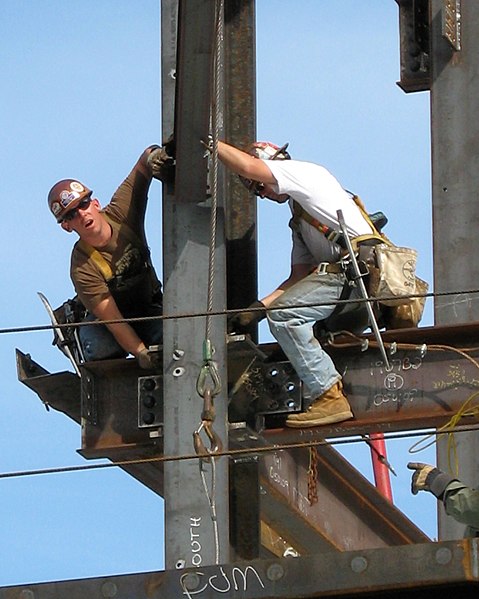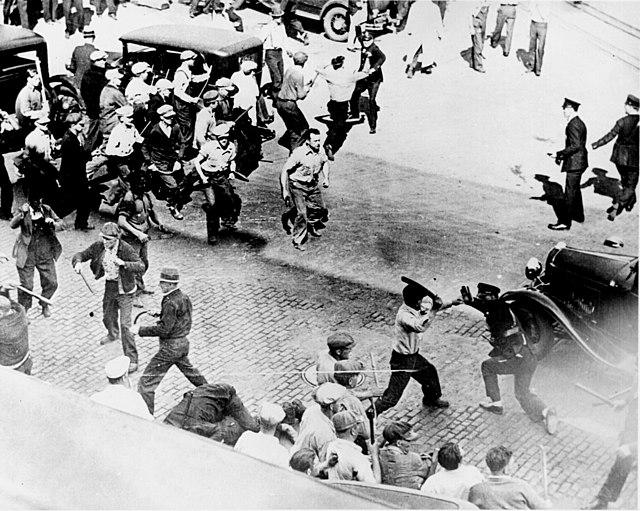The working class, or in Marxist terms, the proletariat, includes all employees who are compensated with wage or salary-based contracts. Working-class occupations include blue-collar jobs, and most pink-collar jobs. Members of the working class rely exclusively upon earnings from wage labour; thus, according to more inclusive definitions, the category can include almost all of the working population of industrialized economies, as well as those employed in the urban areas of non-industrialized economies or in the rural workforce.
Construction workers, commonly regarded as working class, at work at Massachusetts General Hospital in Boston
Working class life in Edwardian St Ives in Cornwall, England
Striking teamsters battling police on the streets of Minneapolis, Minnesota, June 1934
Communist conception of class society. The drawing was based on a leaflet of the "Union of Russian Socialists" 1900/01.
Marxism is a political philosophy and method of socioeconomic analysis. It uses a materialist interpretation of historical development, better known as "historical materialism," to understand class relations and social conflict. It also uses a dialectical perspective to view social transformation. Marxism originates from the works of 19th-century German philosophers Karl Marx and Friedrich Engels. Marxism has developed over time into various branches and schools of thought, As a result, there is no single, definitive Marxist theory. Marxism has had a profound impact in shaping the modern world, with various left-wing and far-left political movements taking inspiration from it in varying local contexts.
Karl Marx in 1875
Friedrich Engels in 1877
The "Pyramid of Capitalist System" cartoon made by the Industrial Workers of the World in 1911 criticising capitalism and social stratification.
Left-wing protester wielding a red flag with a raised fist, both symbols of revolutionary socialism







